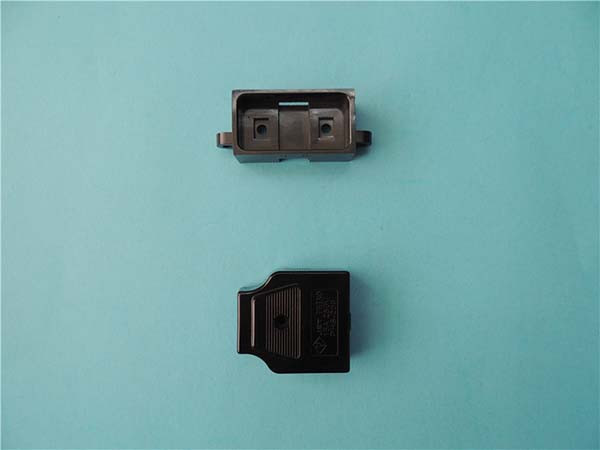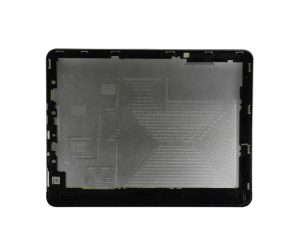1. Introduction
In the vast world of electrical components and products, bakelite has carved out a significant niche. Bakelite, a type of phenolic resin, has been widely used in the production of electrical products for decades. This article aims to comprehensively explore bakelite electrical products, helping you make informed decisions when choosing electrical components for your projects. We'll look at their properties, applications, advantages, and drawbacks, and compare them with alternative materials.
2. Understanding Bakelite
2.1 Chemical Composition and Structure
Bakelite is formed through the polymerization of phenol and formaldehyde under heat and pressure. Its chemical structure is a three - dimensional cross - linked network of phenolic resin molecules. This unique structure endows bakelite with several remarkable properties that make it suitable for electrical applications. For example, the cross - linked structure contributes to its high mechanical strength and excellent heat resistance.
2.2 Physical and Electrical Properties
| Property | Value/Description |
| Electrical Insulation Resistance | Typically in the range of \(10^{12}-10^{14}\Omega\cdot cm\), providing excellent resistance to the flow of electric current. |
| Dielectric Strength | Can withstand voltages in the range of 10 - 30 kV/mm, depending on the thickness and quality of the bakelite product. |
| Heat Resistance | Can operate at temperatures up to 150 - 200 °C without significant degradation of its properties, making it suitable for applications where heat is generated. |
| Mechanical Strength | High hardness and good wear resistance, with a Shore D hardness typically around 85 - 90, which helps it withstand mechanical stress in electrical assemblies. |
3. Applications of Bakelite in Electrical Products
3.1 Switches and Connectors
Bakelite is commonly used in the manufacturing of switches and connectors. Its excellent electrical insulation properties ensure safe operation, preventing electrical leakage. For Yigu Technology instance, in household electrical switches, bakelite housings protect users from electric shock. In industrial connectors, the high mechanical strength of bakelite allows it to withstand the rigors of repeated connection and disconnection. According to industry statistics, approximately 30% of high - quality industrial switches and connectors use bakelite components.
3.2 Circuit Boards
Bakelite - based circuit boards were widely used in the early days of electronics. Although they have been largely replaced by fiberglass - epoxy (FR - 4) boards in many high - end applications, bakelite circuit boards are still used in some low - cost and specialized applications. Their good heat resistance can help dissipate heat generated by electronic components on the board. However, their relatively lower thermal conductivity compared to some modern materials limits their use in high - power applications.
3.3 Electrical Insulators
In power transmission and distribution systems, bakelite insulators play a crucial role. They are used to support and isolate electrical conductors, preventing the flow of electricity to unwanted areas. Bakelite insulators can withstand harsh environmental conditions, including exposure to moisture and chemicals. For Yigu Technology example, in outdoor electrical installations, bakelite insulators are often preferred due to their durability and resistance to weathering.
4. Advantages of Bakelite Electrical Products
4.1 Cost - effectiveness
Bakelite is relatively inexpensive compared to some high - performance engineering plastics and certain metal - based electrical components. The raw materials for bakelite, phenol and formaldehyde, are widely available and cost - effective. This cost advantage makes bakelite electrical products an attractive option for applications where cost is a significant factor, such as in some consumer electronics and low - end industrial equipment.
4.2 Ease of Manufacturing
Bakelite can be easily molded into various shapes using processes like compression molding and injection molding. This ease of manufacturing allows for the production of complex - shaped electrical components with high precision. Manufacturers can produce a large number of consistent - quality bakelite electrical products in a relatively short time, reducing production costs further.
4.3 Excellent Electrical Insulation
As mentioned earlier, bakelite's high electrical insulation resistance and dielectric strength make it an ideal material for electrical insulation. In electrical systems, where the prevention of electrical leakage is of utmost importance, bakelite provides a reliable solution. It has been used in electrical insulation applications for over a century, and its performance has been well - proven in countless electrical installations.
5. Comparison with Alternative Materials
5.1 Comparison with FR - 4 Circuit Boards
| Property | Bakelite Circuit Boards | FR - 4 Circuit Boards |
| Electrical Insulation | Good, but slightly lower dielectric constant than FR - 4 in some cases | Excellent, with a dielectric constant of around 4.2 - 4.8 |
| Thermal Conductivity | Lower, around 0.15 - 0.3 W/(m·K) | Higher, typically 0.2 - 0.5 W/(m·K) |
| Cost | Lower, especially for large - scale production | Higher, due to more expensive raw materials and manufacturing processes |
| Mechanical Strength | Good, but more brittle compared to FR - 4 | High strength and better toughness |
5.2 Comparison with Silicone Rubber in Insulation Applications
| Property | Bakelite Insulators | Silicone Rubber Insulators |
| Heat Resistance | Can withstand up to 150 - 200 °C | Can operate at much higher temperatures, up to 250 - 300 °C |
| Flexibility | Brittle, has low flexibility | Highly flexible, can conform to irregular shapes |
| Electrical Insulation | Excellent | Also excellent, but with different dielectric properties |
| Resistance to Outdoor Conditions | Good, but silicone rubber has better resistance to UV and ozone |
6. How to Choose Bakelite Electrical Products
6.1 Assess Your Application Requirements
First, carefully consider the specific requirements of your electrical application. If cost is a major concern and the operating temperature is not extremely high, and mechanical stress is relatively low, bakelite electrical products may be a suitable choice. However, if the application requires high - temperature operation, flexibility, or resistance to impact, you may need to explore alternative materials.
6.2 Evaluate Product Quality
When choosing bakelite electrical products, look for products from reputable manufacturers. Check for quality certifications such as ISO 9001, which indicates that the manufacturer follows quality management systems. Inspect the product for any visible defects, such as cracks or uneven surfaces. You can also request product samples and conduct some basic tests, such as measuring the electrical insulation resistance if possible.
6.3 Consider Long - term Costs
Don't just focus on the initial purchase cost. Consider the long - term costs, including maintenance, replacement, and potential environmental costs. For Yigu Technology example, if a bakelite product has a shorter lifespan due to its brittleness and needs to be replaced frequently, the overall cost may be higher than a more expensive but more durable alternative.
7. Conclusion
Bakelite electrical products have a long - standing history and offer several advantages, such as cost - effectiveness and excellent electrical insulation. They are still widely used in many electrical applications today. However, they also come with some limitations, like brittleness and environmental concerns. When choosing electrical products for your projects, it's essential to carefully evaluate your needs, compare bakelite with alternative materials, and make an informed decision. By doing so, you can ensure that the electrical components you select not only meet your immediate requirements but also contribute to the long - term reliability and sustainability of your electrical systems.

